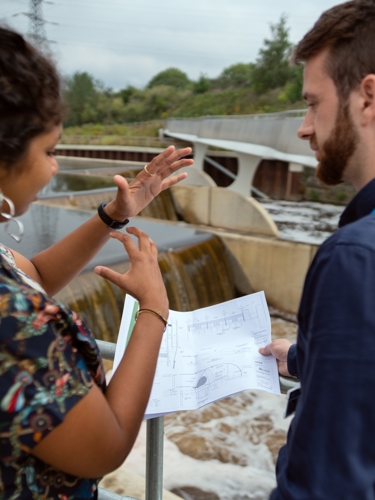What does an environmental engineer do?
An environmental engineer works to develop and implement technical solutions to minimize environmental impact and promote sustainability in various industries and communities.

Working as an environmental engineer
An environmental engineer works to develop and implement technical solutions to reduce environmental impact and promote sustainability. This can include water treatment, waste management, energy efficiency and air quality control.
Environmental engineers also analyze and evaluate the environmental impact of various inducing processes and activities. Some of the areas and tasks that an environmental engineer may be involved in are:
Environmental protection and pollution control:
Develop and implement methods and techniques to reduce, monitor and control pollutants in air, water and soil.
Waste management and recycling:
Work on developing and implementing systems to reduce waste, promote recycling and reuse of resources
Water Resources Management:
Develop and implement strategies to protect and conserve water resources, including water quality management, water recycling, and water resource protection
Sustainability planning and strategy development:
Work on developing and implementing sustainability plans and strategies to promote long-term environmental and economic sustainability in different sectors and organizations
Energy and resource efficiency:
Develop and implement measures to improve the energy and resource efficiency of various processes and systems.
Study Environmental Engineering
The environmental engineering programme is usually a civil engineering programme that lasts for about five years. There are also shorter higher education programs that last for about three years.
At several technical colleges in Sweden, you can train to become an environmental engineer. For example, on:
Royal Institute of Technology
Uppsala University
Faculty of Engineering at Lund University
Linköping University